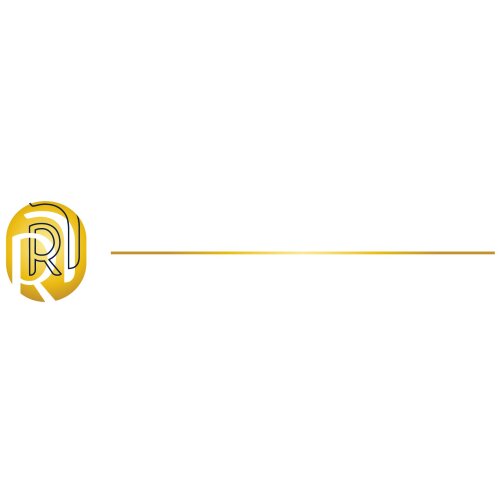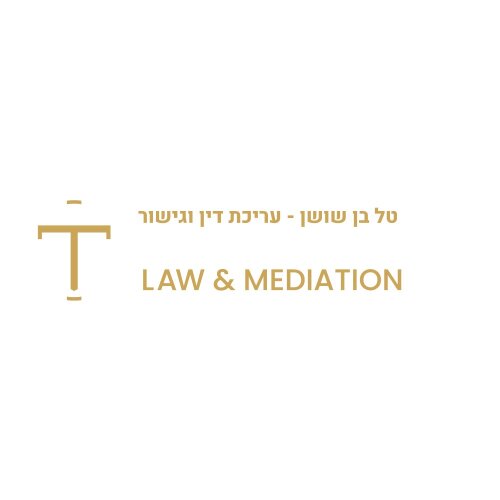Best Art & Cultural Property Law Lawyers in Rishon LeZiyyon
Share your needs with us, get contacted by law firms.
Free. Takes 2 min.
List of the best lawyers in Rishon LeZiyyon, Israel
About Art & Cultural Property Law in Rishon LeZiyyon, Israel
Art & Cultural Property Law in Rishon LeZiyyon, Israel, encompasses a broad range of legal concerns related to the ownership, transfer, and protection of art and cultural assets. The city, known for its vibrant cultural scene, is home to numerous artists, galleries, and institutions. Art & Cultural Property Law helps safeguard creators' rights, ensure ethical practices in art dealings, and preserve cultural heritage. This legal field is aligned with Israeli national laws, international treaties, and Rishon LeZiyyon's local regulations to protect and promote cultural properties and art endeavors within the city.
Why You May Need a Lawyer
If you are involved in the art world, there are multiple scenarios where you might need legal assistance in Art & Cultural Property Law. Some common situations include:
- Disputes over artworks’ provenance or authenticity.
- Negotiating and drafting contracts for the sale, loan, or exhibition of art pieces.
- Handling international art transactions and ensuring compliance with trade laws.
- Trademark and copyright issues involving artworks or cultural expressions.
- Resolving restitution claims for looted or stolen art and cultural goods.
- Advising on the legalities of creating, displaying, and selling local and international art.
Local Laws Overview
Several key aspects of local and national laws relevant to Art & Cultural Property Law in Rishon LeZiyyon, Israel, include:
- The Copyright Law of 2007, which protects the rights of creators and prevents unauthorized use of artwork.
- Israel’s Antiquities Law, which governs archaeological finds and emphasizes the preservation of historical artifacts.
- Provisions under the Israel Museum Law, reflecting on the responsibilities of cultural institutions.
- Export and import regulations for art and cultural property to ensure compliance with international conventions such as the UNESCO Convention.
- Municipal bylaws specific to Rishon LeZiyyon that regulate the operation of galleries and cultural events within the city.
Frequently Asked Questions
What is considered a "cultural property" in Israel?
Cultural property in Israel generally includes works of art, artifacts, monuments, manuscripts, historical records, and any items with cultural significance related to archaeology, prehistory, literature, art, or science.
Is it legal to export cultural artifacts from Israel?
Exporting cultural artifacts from Israel is subject to strict regulations. A special permit from the Israel Antiquities Authority is required, ensuring that cultural heritage is protected. Unauthorized export of such items is illegal and can lead to penalties.
How can I prove the provenance of an artwork?
Provenance can be established through documentation such as sales receipts, exhibition history, letters of authenticity from reputable experts, and any other evidence that traces an artwork’s ownership history.
Can I copyright an artwork I created?
Yes, in Israel, artists automatically receive copyright protection upon the creation of their work. This protection covers the artist’s rights to reproduce, distribute, display, and perform their work publicly.
What should I do if my artwork is plagiarized?
If you discover that your artwork has been plagiarized, it's crucial to seek legal advice to explore options for enforcement of your rights, which may include filing a lawsuit or negotiating a settlement.
How are art transactions regulated in Rishon LeZiyyon?
Art transactions in Rishon LeZiyyon are regulated under commercial laws applicable throughout Israel, alongside specific local ordinances regarding the operation of art-related businesses.
What are the legal obligations of art galleries in Rishon LeZiyyon?
Art galleries must adhere to specific licensing and operational requirements under local laws, ensure authenticity in representations, abide by contractual agreements, and respect intellectual property rights.
How are disputes over art ownership resolved?
Disputes can be resolved through negotiation, mediation, arbitration, or litigation, depending on the circumstances and the parties involved. Engaging a lawyer can help navigate these processes effectively.
Is there a legal framework for protecting digital art?
Yes, digital art enjoys the same copyright protection as traditional art forms. Additional considerations include licensing agreements and rights management for digital distribution and use.
How can I donate art to a museum in Rishon LeZiyyon?
Donating art requires you to contact the museum's administration to discuss conditions, legal considerations, and tax implications. Typically, a formal donation agreement is executed to outline the terms.
Additional Resources
For further assistance, consider contacting:
- The Israel Antiquities Authority for guidance on cultural artifacts.
- The Ministry of Culture and Sport for policies related to art and cultural heritage.
- Local law firms specializing in Art & Cultural Property Law.
- The Israeli Bar Association for a directory of certified lawyers in relevant legal fields.
Next Steps
If you need legal assistance in Art & Cultural Property Law, it's advisable to consult with a specialized lawyer who understands both local and international legal frameworks regarding art and cultural property. Start by researching reputable law firms in Rishon LeZiyyon, schedule initial consultations, and discuss your needs and concerns comprehensively. Ensure the lawyer you choose has experience in dealing with cases related to your situation, whether it's about copyright issues, art transactions, or cultural property disputes. This approach will help you protect your interests efficiently and effectively in the thriving art scene of Rishon LeZiyyon.
Lawzana helps you find the best lawyers and law firms in Rishon LeZiyyon through a curated and pre-screened list of qualified legal professionals. Our platform offers rankings and detailed profiles of attorneys and law firms, allowing you to compare based on practice areas, including Art & Cultural Property Law, experience, and client feedback.
Each profile includes a description of the firm's areas of practice, client reviews, team members and partners, year of establishment, spoken languages, office locations, contact information, social media presence, and any published articles or resources. Most firms on our platform speak English and are experienced in both local and international legal matters.
Get a quote from top-rated law firms in Rishon LeZiyyon, Israel — quickly, securely, and without unnecessary hassle.
Disclaimer:
The information provided on this page is for general informational purposes only and does not constitute legal advice. While we strive to ensure the accuracy and relevance of the content, legal information may change over time, and interpretations of the law can vary. You should always consult with a qualified legal professional for advice specific to your situation.
We disclaim all liability for actions taken or not taken based on the content of this page. If you believe any information is incorrect or outdated, please contact us, and we will review and update it where appropriate.









